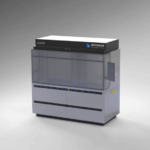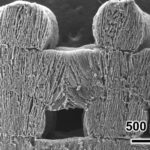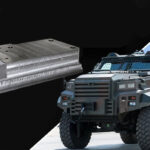Hyliion has been awarded a Small Business Innovation Research (SBIR) government contract by the United States Navy. This contract marks the beginning of an ambitious project to develop a megawatt-scale modular generator system based on Hyliion’s advanced KARNO generator technology.

A New Phase in Power Generation
The SBIR Phase 1 award, designated as N241-060, empowers Hyliion to design a preliminary model of the KARNO generator for naval applications. This generator, known for its ability to operate on over twenty different fuels—including hydrogen, natural gas, propane, ammonia, and conventional fuels—represents a versatile solution for the Navy’s Unmanned Surface Vessel (USV) power needs.
Hyliion’s approach involves scaling its 200 kW KARNO genset by combining multiple units to reach the required power output. The result is a system that is both flexible and adaptable, capable of meeting various power requirements and fitting within the spatial constraints of different platforms.
Thomas Healy, founder and CEO of Hyliion, expressed the company’s enthusiasm for this project, stating, “We are honoured to receive this SBIR contract from the United States Navy. This award is a testament to the KARNO generator’s expected ability to offer efficient, flexible, and low-maintenance power generation. We are excited to contribute to the Navy’s mission and explore higher power solutions for their USV initiative.”
The overarching goal of the N241-060 program is to create a megawatt-scale, ultra-reliable generator that meets the Navy’s stringent requirements. The envisioned generator will feature a modular design with smaller kW-scale units configured into a high-density package. This design aims to achieve a 4,000-hour no-touch maintenance periodicity, ensuring continuous, reliable operation in challenging naval environments.
Partnership with Flexnode
In addition to its work with the Navy, Hyliion has also entered into a non-binding Letter of Intent with Flexnode, a digital infrastructure company focused on high-density data centre solutions. Under this agreement, Hyliion will supply up to ten KARNO generators to Flexnode, totaling 2 MW of capacity. Initial deliveries are expected to begin in 2025.
Flexnode’s mission is to push the boundaries of digital infrastructure, particularly in the realms of artificial intelligence and machine learning. By integrating Hyliion’s efficient, fuel-agnostic KARNO generators, Flexnode aims to provide reliable, clean on-site power for its data centres. This collaboration allows Flexnode to deploy infrastructure incrementally, aligning growth with demand and optimizing edge performance for latency-sensitive workloads.
Flexnode co-founder and CEO, Andrew Lindsey, highlighted the significance of this partnership, stating, “Availability, carbon intensity, and energy costs are critical factors currently limiting the growth and deployment of data centres. Integrating Hyliion KARNO generators into our Flexnodes for on-site clean energy production allows our customers to accelerate their plans and deploy data centres on demand without compromises.”
Thomas Healy of Hyliion echoed these sentiments, emphasizing that the KARNO generator technology is ideally suited to meet the growing energy demands of modern data centres. “By combining KARNO generators with Flexnode’s cutting-edge digital infrastructure solutions, we are pioneering a new approach to deploying modular, highly efficient data centres in the industry,” Healy remarked.
Hyliion’s recent developments highlight its growing influence in both military and commercial sectors through the innovative application of its KARNO generator technology. By securing the SBIR contract with the US Navy, Hyliion is set to deliver a modular, megawatt-scale power solution tailored to the demanding requirements of naval operations. Simultaneously, its partnership with Flexnode underscores the KARNO generator’s potential to revolutionize data center infrastructure with reliable, clean energy. Together, these initiatives demonstrate Hyliion’s commitment to advancing sustainable power generation across diverse applications.
Source: metal-am.com










